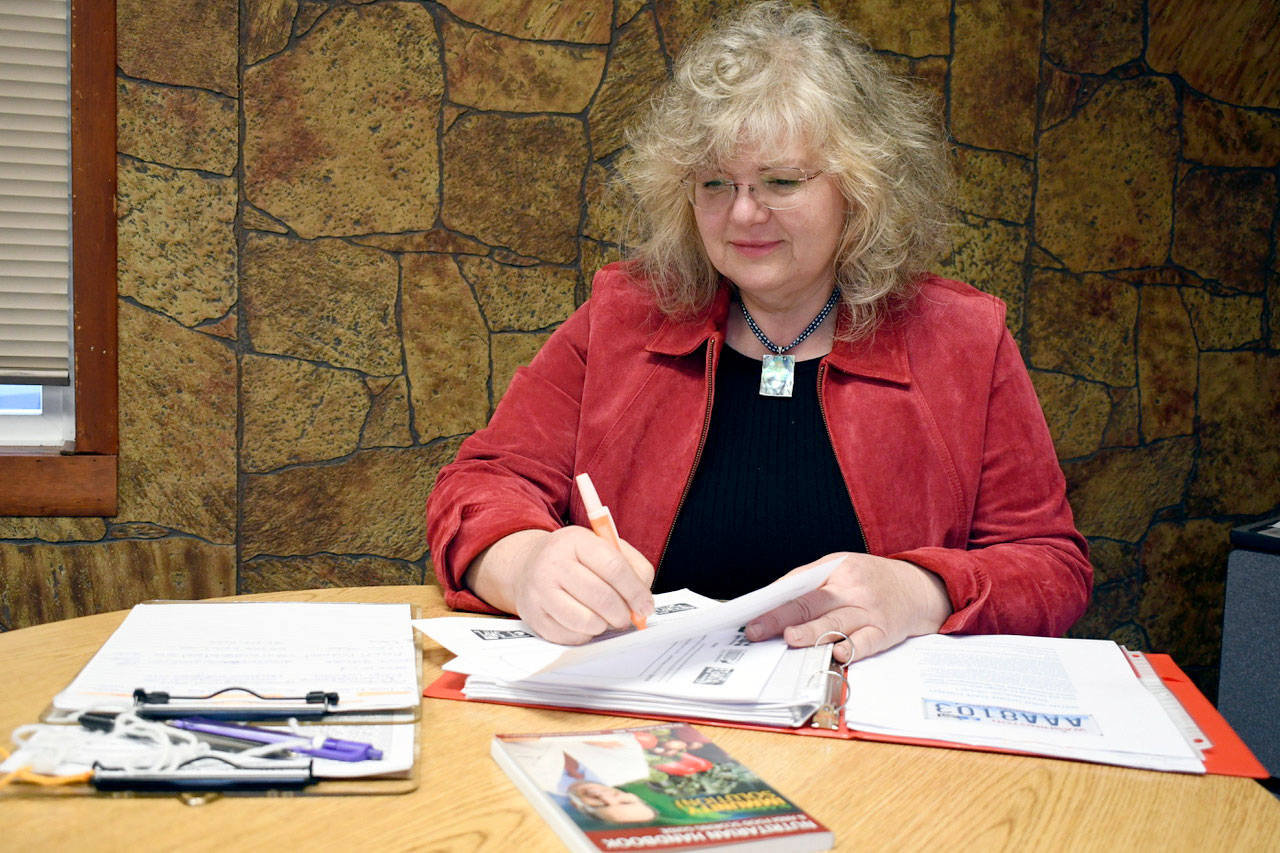PORT TOWNSEND — The effects of diabetes took the life of Fariborz Youssefirad just before Christmas 2014. While in treatment in a dialysis unit he told his wife, Marie, that he saw people younger than he and was “heartbroken” to find them there.
His medical issues were the direct result of undiagnosed Type 2 diabetes.
In 2010, he discovered he had 30 percent of his kidney function.
The medical problems and treatment costs kept escalating until his death at 58.
“The remarkable thing was his concern for others,” his wife said. “He did not want to see anyone else suffer as much as he was suffering.”
She promised him that she would help make a difference, and that his death would be a catalyst for change.
Youssefirad, who lives in Port Townsend, formed a nonprofit organization, the Fariborz Youssefirad Memorial Health Scholarship (FYMHS), to offer young people sensible ways to prevent the disease.
Diabetes is a chronic disease that affects the way a person’s body regulates blood sugar, or glucose.
Type 2 generally is developed later in life than Type 1 diabetes, found in children.
However, children as young as 8 recently have been found to develop Type 2, Youssefirad said.
She said the foundation she founded has both an educational and a scholarship component.
The organization has started a campaign for a special Washington state license plate series, “Ending Type 2 Diabetes,” as a fundraiser.
Students in Port Townsend and Chimacum schools are participating in a design competition for the plates. The deadline for the designs is Dec. 14.
“We need $6,300 for the application fee to the state and 3,500 applicants for the new plate to make this all possible,” Youssefirad said.
“All money generated by license plate sales will fund the scholarship program.”
Chimacum Schools Superintendent Rick Thompson said the design program is a great idea.
“The plate is a great cause, and it’s a good community wellness initiative,” Thompson said. “Having the kids involved doing the design is a positive step. The more it gets out there, the more everyone is aware of diabetes.”
Drawings will be on display at a yet-to-be-confirmed storefront in Port Townsend during January and the public will be asked to choose the winning design.
Youssefirad said vanity plates cost vehicle owners an additional $60 to $100 depending on size of the vehicle; she added she so far has 50 people interested in supporting the cause.
Youssefirad has been networking with Wilder Auto in Port Angeles and a luxury car dealer in Seattle to present the plate program to new car purchasers.
John Hanford, University of Washington music professor, is circulating the message through his campus internet and among his students to get the word out.
“For each plate, 100 percent of the funds, currently $28 each, will go toward the scholarships,” Youssefirad said.
The scholarship money will be available to well-qualified local high school senior or college students in amounts ranging from $1,000 to $5,000.
“We are hoping that the program, which is based on lifestyle medicine, will really encourage kids to eat well, move more and have a happy life,” Youssefirad said.
“Type 2 diabetes is [usually] preventable. One of my biggest concerns is that it has become a management issue. The most progressive thing we can do is change the approach. How we look at this can be instantly improved if we teach people a different lifestyle.”
The organization is developing a student curriculum as an introduction to the disease. In the four-part series, students will learn about nutrition and lifestyle.
“There will be fun challenges and kids will create recipes that will go into a class book,” she said. “We’ll show a video about the relationship between the disease and nutrition. Each students will get the book, ‘The Nutritarian,’ by Joel Fuhrman, M.D.”
Youssefirad also has been working with the Michael Phelps Foundation to arrange for athletes to Skype into the class presentations. They will discuss how important food and activity are to a healthful lifestyle.
“Diabetes is our pandemic,” she said. “We have to decide as a society if we want to allow it to continue. Everything I’ve been told by doctors is that this is completely reversible and avoidable.
“They have documented many times this is the case and our current medical system needs to change.”
Within the past few weeks, a business leader contacted Youssefirad from Mapastepec, a town in Chiapas, Mexico, about starting a program there.
“Diabetes is so bad in their area,” she said. “Given the poverty level, management is not an option. It is incredibly touching that they would make this effort to do this for their community.”
In March 2018, she donated a veterinary syringe patent to the nonprofit, she said on the website fymhs.org.
“I have been in a position of incredible grief and of disbelief at the suffering that a person can go through,” Youssefirad said.
“It was so terrible to see it, I don’t want anyone to go through it. It has such an effect on a life. Be aware and do things to be healthy and happy. It’s within your own control.”
For more information or to donate, see www.fymhs.org. The organization is also part of Amazon Smile which will donate 0.5 percent of the purchase price of eligible products.
________
Jefferson County Editor/Reporter Jeannie McMacken can be reached at 360-385-2335 or at jmcmacken@peninsuladailynews.com.

